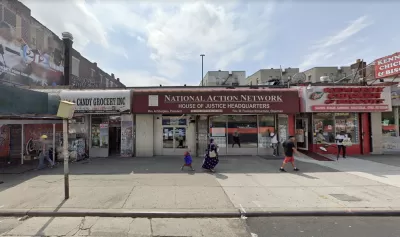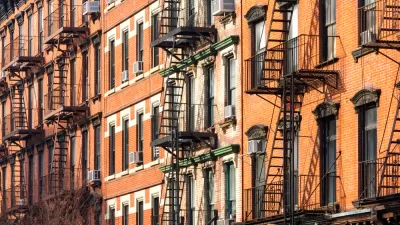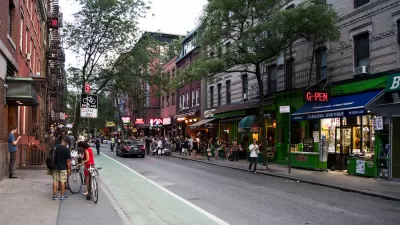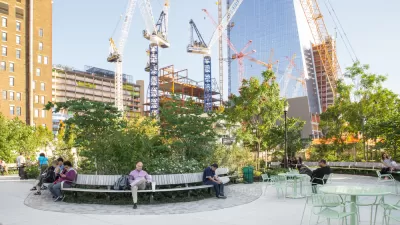After facing community opposition and a call for more deeply affordable housing units, developers withdrew their proposal for Harlem’s One45, prompting questions about the future of the site.

Developers have withdrawn a proposal that would have built two mixed-use towers in Harlem, reports Nick Garber in Patch, in part due to opposition from community members and Harlem Councilmember Kristin Richardson Jordan. The proposal was withdrawn “hours before it was set to be voted on by a City Council committee,” Garber writes. “Besides affordability, opponents also expressed concerns over the buildings' height, and the potential for added traffic and crowding at a nearby subway station.”
While the initial proposal would have contained hundreds of affordable housing units—units that Richardson Jordan said would not be “actually affordable to the community”—, Garber writes that “the block will eventually be transformed regardless — now, likely with a fully market-rate project that will still displace the block's current tenants, including the National Action Network.” According to an article in The Gothamist by Gwynne Hogan, “the developer made several rounds of last-minute concessions,” eventually increasing the subsidized units to 50 percent.
“Having failed to get the zoning changes needed for One45, developers Bruce Teitelbaum and his partners will likely build a combination of market-rate condominiums, a self-storage facility and an unspecified community facility, according to a source familiar with the plans.” The source also noted that the new project would likely be built using non-union labor.
FULL STORY: Harlem's One45 Project Defeated; Storage, Condos Likely Replacement

Planetizen Federal Action Tracker
A weekly monitor of how Trump’s orders and actions are impacting planners and planning in America.

Maui's Vacation Rental Debate Turns Ugly
Verbal attacks, misinformation campaigns and fistfights plague a high-stakes debate to convert thousands of vacation rentals into long-term housing.

San Francisco Suspends Traffic Calming Amidst Record Deaths
Citing “a challenging fiscal landscape,” the city will cease the program on the heels of 42 traffic deaths, including 24 pedestrians.

Amtrak Rolls Out New Orleans to Alabama “Mardi Gras” Train
The new service will operate morning and evening departures between Mobile and New Orleans.

The Subversive Car-Free Guide to Trump's Great American Road Trip
Car-free ways to access Chicagoland’s best tourist attractions.

San Antonio and Austin are Fusing Into one Massive Megaregion
The region spanning the two central Texas cities is growing fast, posing challenges for local infrastructure and water supplies.
Urban Design for Planners 1: Software Tools
This six-course series explores essential urban design concepts using open source software and equips planners with the tools they need to participate fully in the urban design process.
Planning for Universal Design
Learn the tools for implementing Universal Design in planning regulations.
Heyer Gruel & Associates PA
JM Goldson LLC
Custer County Colorado
City of Camden Redevelopment Agency
City of Astoria
Transportation Research & Education Center (TREC) at Portland State University
Jefferson Parish Government
Camden Redevelopment Agency
City of Claremont





























